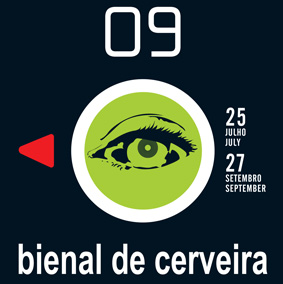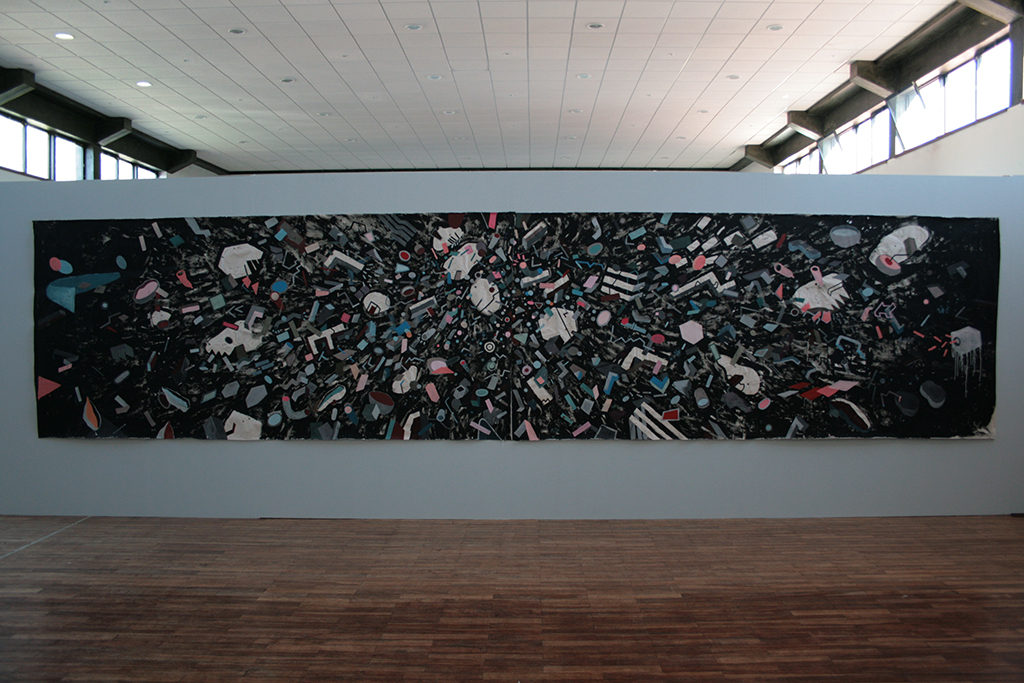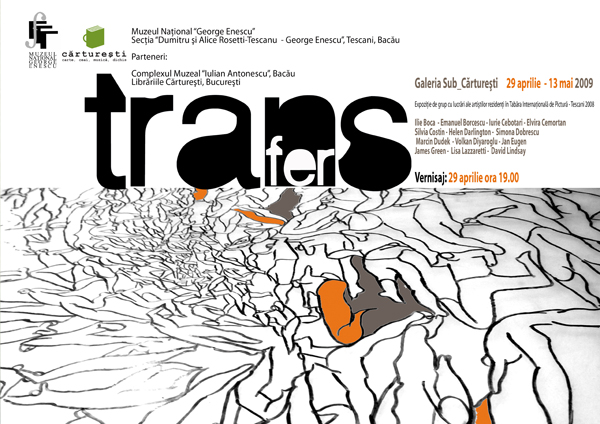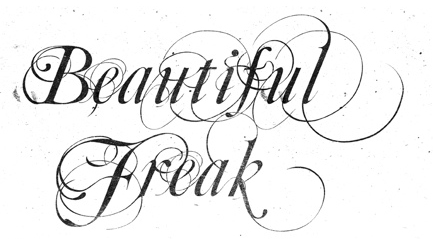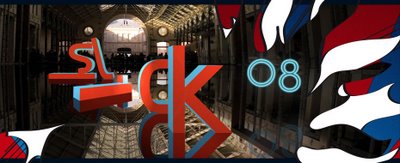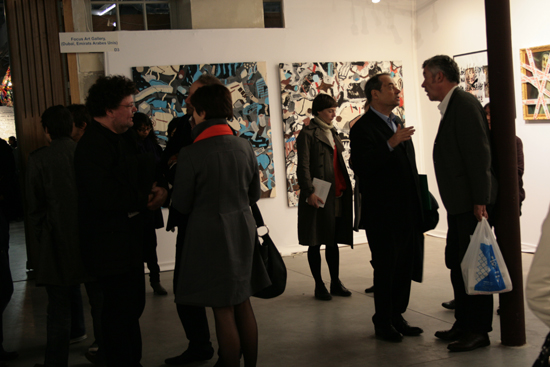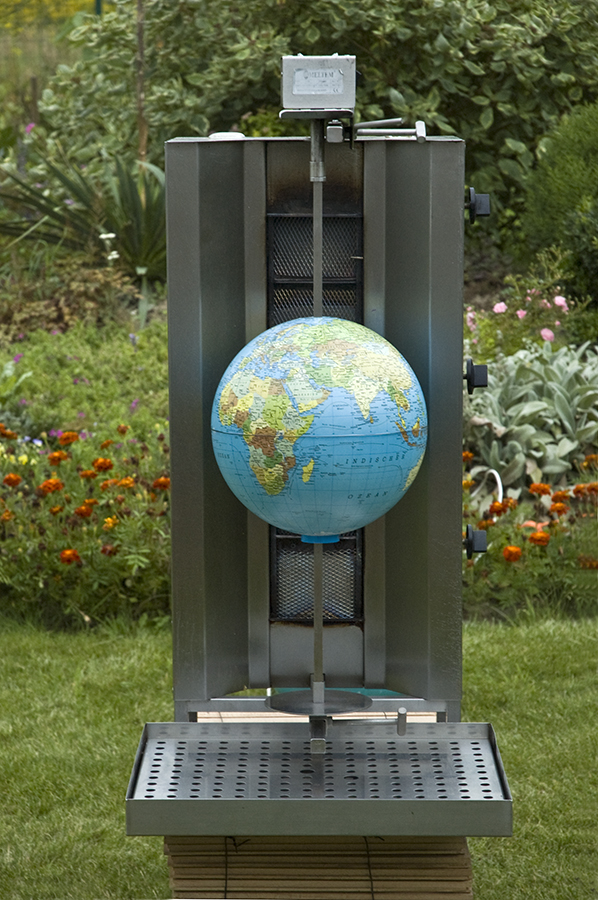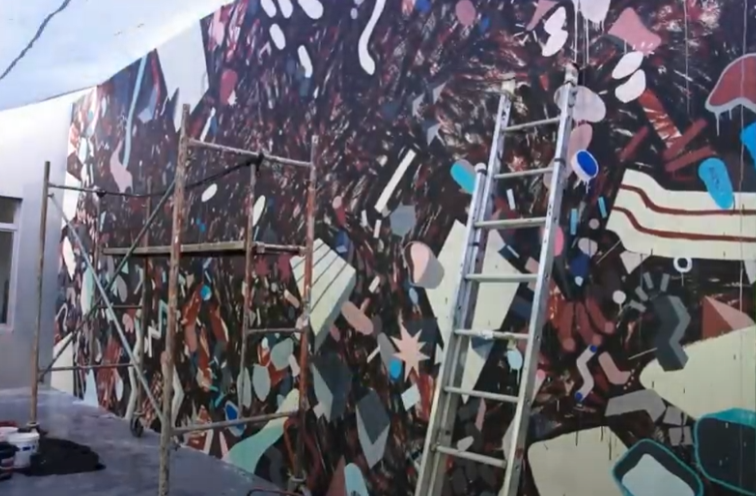Volkan Diyaroglu "WORMHOLES" Ar/ Contemporary Gallery, Milano, Italy
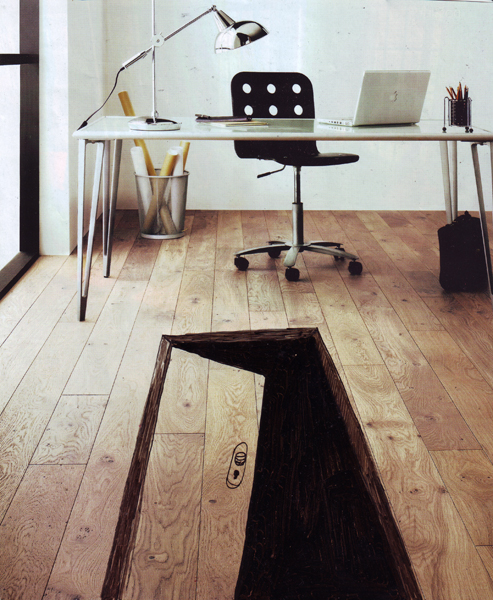
01/02/2010 – 30/03/2010
AR / Contemporary Art is pleased to announce an exhibition of Volkan Diyaroglu Milano via Marco Polo 11 tel. +39 02 4549 8902 Private View by appointment from monday through friday. New York 210 East 5 th Street. NY 10003 tel +1 212 671 1027 Private View by appointment.
If he saw a child near a mirror, he might wag his finger at a child warningly, and say with great solemnity, “Don’t get too near that leak. You wouldn’t want to wind up in the other universe, would you?”Read more
the visual artbeat magazine… "The Art of Volkan Diyaroglu", Nicholas Forrest
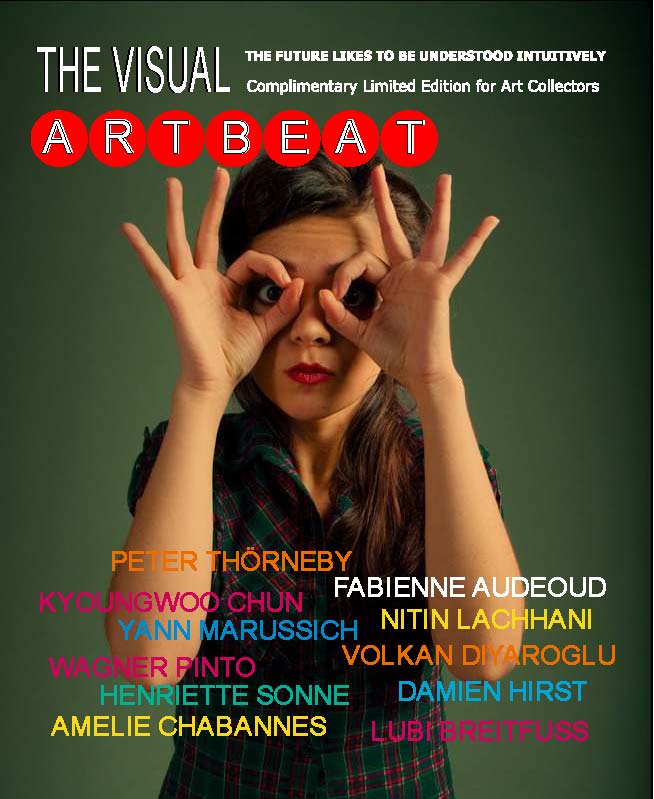
The Art of
Volkan DIYAROGLU
By Nicholas Forrest
When I was asked to write this article about the work of the 27 year old Turkish born, Spain
based artist Volkan Diyaroglu I was excited and honoured because Volkan is one of the most
talented artists I have ever come across. An artist whose use of colour and form suggests a
heightened visual-spatial intelligence and an extra-sensory perception of the visual language.
However, no matter what I write I cannot do his work justice because it is not the sort of work
that should be written about, it is the sort of work that should be experienced. Neither can I
really explain his work as it is the result of a process that even the artist himself cannot
explain – a process where Volkan surrenders himself to his work and allows intuition to guide
his every move. It is a very personal and intimate process which is driven by the subconscious
mind and is more about the artists own journey than anything else.Read more
"CAOS VS ORDINE" _ AR / CONTEMPORARY GALLERY, MILAN

"in search of lost reality: nevgeneration" / Galeri Nev / Ankara
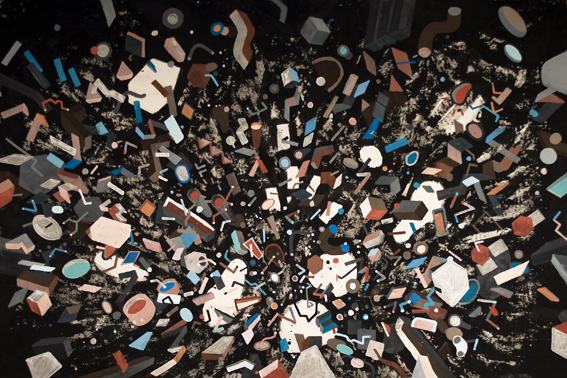
| Group Exhibition: in search of lost reality: nevgeneration |
| 15.05.2009 – 15.08.2009 Galeri Nev, Ankara, Turkey more information: http://www.galerinev.com/eng_exhibition.asp |
MAUS HABITOS_PORTO_16 APRIL-10 MAY 2009
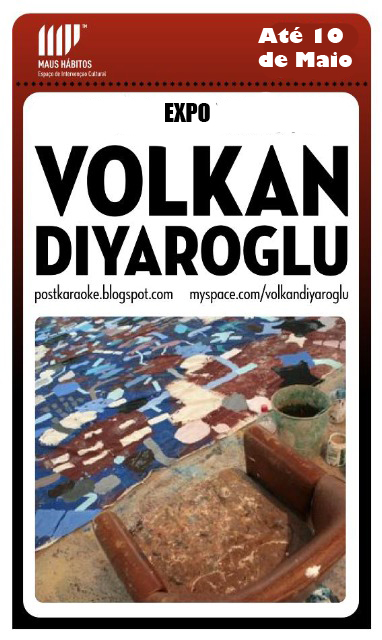
Volkan Diyaroglu will exhibit the works that he realized during the Maus Habitos Residence in April 2009.
Volkan Diyaroglu is in AL BASTAKIYA ART FAIR in Dubai with SAATCHI ONLINE
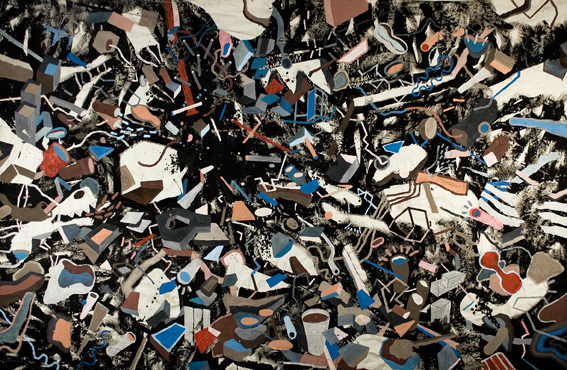
Volkan Diyaroglu will participate to Al Bastakiya Art Fair, in Dubai with Saatchi Online.
Now in its third year, Al BASTAKIYA ART FAIR (BAF) will take place in the houses of Bastakiya, the historic area of Dubai, 15 – 22 March 2009 and from 9am to 8pm daily.
The exhibition of the Saatchi Online in the fair is curated by, Saatchi Online’s critic and curator Ana Finel Honigman and Saatchi Online’s editor and curator Rebecca Wilson.
Beautiful Freak 5-27 March 2009, Forja Arte Contemporaneo
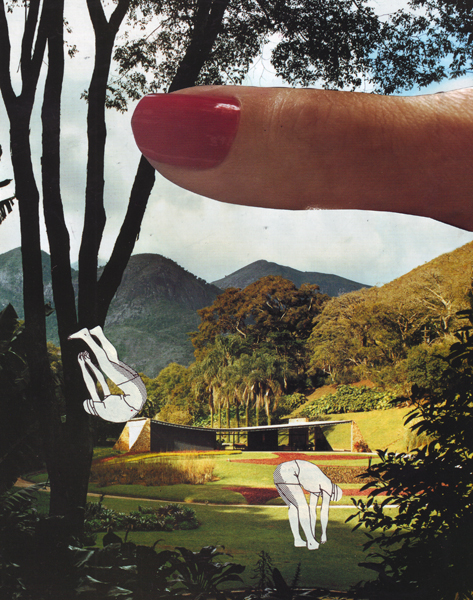
The artists:
Jorge Carla, David La Torre, Sergio Luna, Violeta Esparza, Volkan Diyaroglu, Ima Picó, Abraham Martínez, Daniel Reyes, Linda Randazzo, Leonardo Gutiérrez, Filippos Tsitsopoulos, Carlos Cid, Sergio Zavattieri, Cristian Peralta, Jorge López, Juan Jose Martin Andres, Rafael Molina, Federico Lupo, Nacho Ruiz, Oliver Johnson, Greta Alfaro.
+ information:
http://www.forjaarte.es/portal/
VRV Gallery Interview / Paintings From Another World..
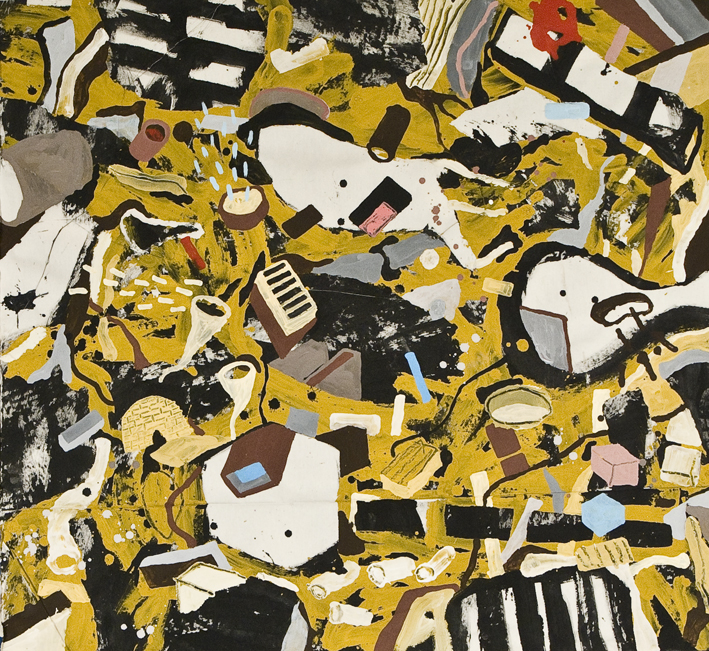
"NEVER_INTIM" PAU ANDRES TEXT
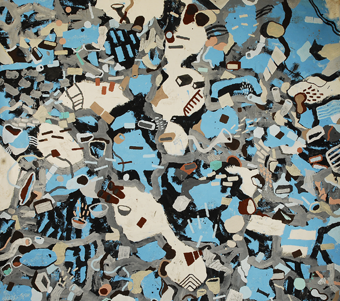
Cuenta Orhan Pamuk en Estambul. Ciudad y recuerdos que nunca ha podido dejar la ciudad en la que nació. Otros, dice, como Conrad, Nabokov o Naipaul pudieron apartarse de ella e incluso escribir en otras lenguas, pero Pamuk sintió que no podría alejarse de aquellas calles que lo vieron nacer en la antigua Constantinopla. A Volkan Diyaroglu, que de bien joven salió de esa ciudad para recorrer medio mundo antes de llegar a Valencia, alguna vez le preguntaron sobre las influencias de su obra. ¿Quizá el action painting, tal vez el expresionismo abstracto? Y tras meditarlo un poco, respondía que puede que en la Mezquita Azul de Estambul residiera el embrión de su práctica pictórica.Read more
"MI VERTIGO" PAINTINGS AND TONI CALDERON TEXT
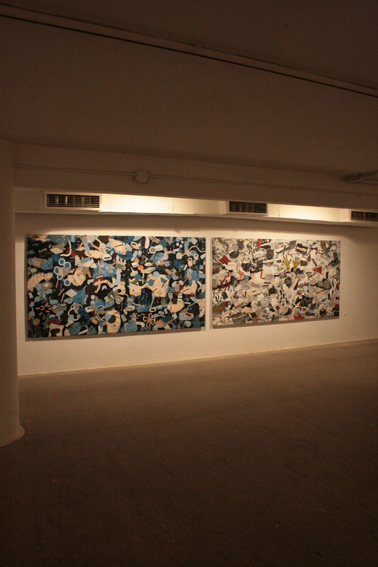
“el lienzo es un campo de juego en el que reproducir, rediseñar, analizar o expresar un objeto real o imaginario”
Harold Rosemberg
La obra del joven artista turco afincado en París Volkan Diyaroglu es mucho más que pintura. Para Volkan el proceso, las dimensiones y el espacio forman parte de su trabajo. Si su trabajo se analiza desde un punto estrictamente pictórico se evidencian claras similitudes con artistas universales del arte contemporáneo, en concreto, con los creadores de la “action painting” de los años cincuenta y también con la pintura renovada de principios de los ochenta o lo que es lo mismo, con el expresionismo abstracto de Jackson Pollock o la nueva pintura cuyo máximo exponente es Jean Michel Basquiat. Estas influencias, a priori, pueden definir a Volkan como un artista ecléctico en el sentido literal de la palabra, lo que no presume entenderlo en sentido peyorativo, pues el arte progresa y se anticipa cuando es capaz de conjugar pasado y presente a la hora de recorrer nuevos caminos. Read more
"DELIK" PAINTINGS AND JOSE MIR TEXT
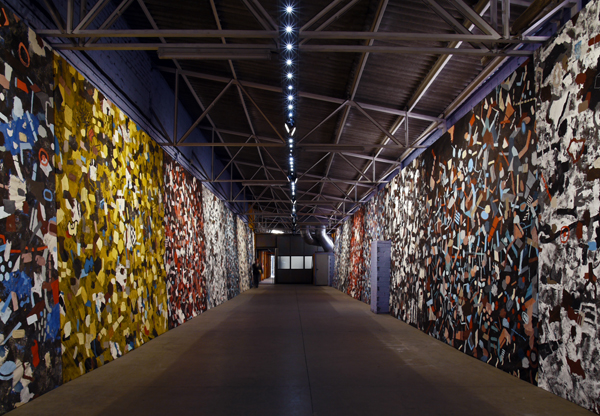
Nevertheless, a false sense of deja-vu shouldn’t influence the perception of the artist’s canvases in the least. One can appreciate how he immersed himself in his influences, both formal and those of process, to create experimental and free paintings whose borders continuously move in intuitive fountain of unlimited creativity. The elements are hybrids rather than pure, confused rather than clear, perversely indeterminate, elements that show the artist as a clear and individual personality.Read more
"DELIK" PAINTINGS AND INTERVIEW WITH TONI CALDERON
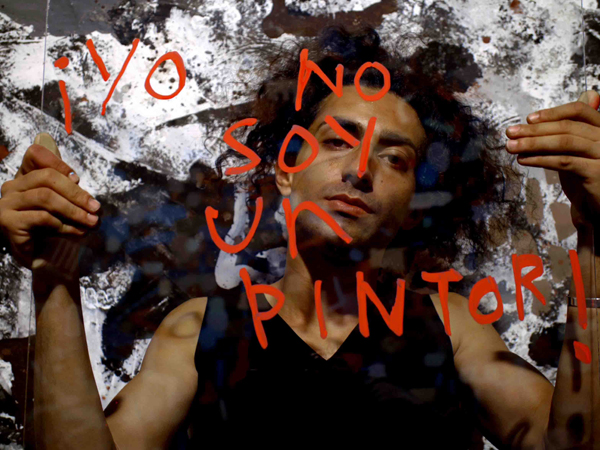
Toni Calderón. What role does painting have in an art world dominated by digital technologies?
Volkan Diyaroglu. In the first place, we have to look at ourselves and ask what role do the new digital technologies have in our lives and question what role we ourselves play. Do we have control over our lives? I would answer no. In no aspect of our life do we exercise the control that we should, and what’s more, at present digital technology dominates us rather than we dominating it. We’re under a dictatorial power and unable to decide the rhythm of our lives, which in a certain sense is absurd.
I would say that we are swept along in a wild, swirling river where each individual is looking for his place, complicated by swimming against the current. I believe that this structure destroys artistic creation from the start. I’m not saying that we shouldn’t accept new developments; on the contrary, we have to accept it with a wide understanding and ability to see what things have in common and what their differences are. No just looking at surface appearances, but digging a bit deeper.
For me, painting is just painting, no more no less, like poetry - it’s that simple. Asking questions is fine, but one also has to be able not to understand and to continue asking. And if I have to talk about the use of the new digital technologies in art, millions of questions are raised in my mind. Why does something painted in a computer with a 3d programme and then printed on a clean and shiny surface, or a photograph have to be any different than a painting? Or why is a painting any different than, for example, a cup o an apple? I think that what we’re left with is that they simply exist. Personally, I think that before looking at any technical questions, we should look at the context. The truth is that never has it been as difficult to be a painter in a society that moves along to the rhythm of what’s in fashion, like postmodern cannibals, and then run quickly to another objective, thereby creating a disorderly circulation of our own individual selves that is very dangerous, seemingly ordered but subordinate to power and the system.
Nonetheless, I think that never has painting, as we ourselves are, been so interesting, immersed in increasingly complex societies. Bit by bit, the new technologies are distancing humans from their own physical being, converting them into an object of consumption. I like and hate painting for the slow rhythm and its relationship with my physical body. I’m more interested in the time I spend while I paint than the finished work ready to be consumed by the spectator, although the finished result also interests me, but to a lesser degree. But who is to say that painting isn’t another new technology? Every day, I invent a new technology in my painting though I don’t tell anyone about it; it’s a secret surprise for myself and for those, who like me, don’t fit into this world. My paintings are there, as I said, like a table that is now before me, quiet and silent, and in the end I think that painting simply has the role of painting, just as we play the role of ourselves at the same time.
neden bir ressam olmamak gerek?
NEDEN BIR RESSAM OLMAMAK GEREK?
1. Belki de butun hayatiniz boyunca neden bir ressam oldugunuzu dusunursunuz ve cogu zaman anlam veremezsiniz buna.
2. Yaptiginiz isi sanat kavraminin altina sokarlar, siz daha sanatin ne oldugunu bile kavrayamadan ve yaptiginiz islere ad koyarlar size bile sormadan. Aslinda sizin derdiniz resim yapmaktir basitce.
3. Butun hayatinizi bir tuvalin ve ya bir nesnenin karsisinda gecirirsiniz (fiziki veya ruhsal olarak.Read more
¿donde estoy yo?
¿donde estoy yo?
Cogemos cualquier punto y desconocido de cualquier trozo del tiempo. Y le unimos con otro punto para crear una línea. Y seguimos con la misma acción con los otros puntos desconocidos. Al final todo este acción nos lleva a algo totalmente desconocido también. Tampoco se puede decir que eso es algo, claro, nada se puede explicar. Poco a poco la luz se va y no queda nada en el medio. Las reglas no son claras, pero quizás sus existencias son posibles. La distancia entre el punto que yo estoy al otro es 0. Esto es inexplicable. Y cuanto hablamos mas sobre eso, se volará hacia el espacio, se hará sonido y se desaparecerá. Quizás lo que existe es el momento o el espacio, pero no el espacio especifico. El espacio es el espacio y no puede ser mas. Y el tiempo, cuando hablo sobre el, se quita de mis manos, de mi conciencia dolida. Finalmente todo eso no puede explicar mi pintura. Yo tampoco puedo explicarme todo eso.
volkan diyaroglu
2005

